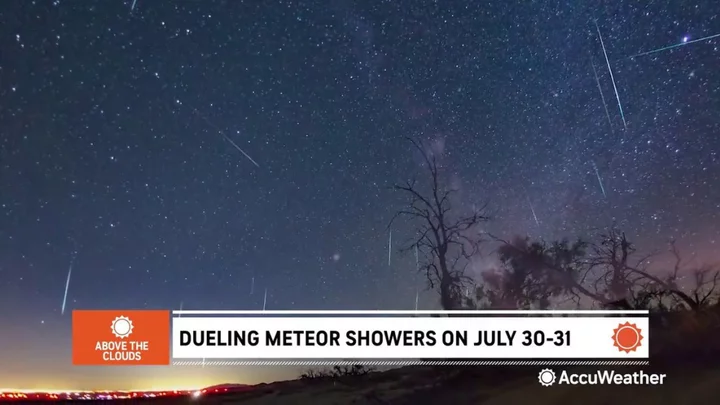A meteor which exploded over the Atlantic had similar force as Hiroshima atomic bomb
A meteor exploded over the Atlantic Ocean at a force comparable to the atomic bomb dropped on Hiroshima during the Second World War. While this may sound like a scary prospect, there is nothing to worry about as this asteroid did not actually hit the Earth. The debris burned up at a height of around 31 kilometres above the Atlantic Ocean off the coast of Brazil, experts say. Data from NASA showed that the meteor appeared to release the equivalent energy of around 12,000 tonnes of TNT - that's approximately 12 kilotons of explosive power. Sign up to our free Indy100 weekly newsletter Similarly, the Hiroshima Bomb detonated with an approximate energy of 15 kilotons – that is, 15 thousand tonnes of TNT equivalent. This force caused devastation in the Japanese city and killed at least 80,000 people instantly, with tens of thousands dying later due to radiation exposure. Although 12 kilotonnes does sound like a lot, there have also been other explosions that have had a higher number than this. One example is the 450 kilotons of explosive energy (0.45 megatons) released as a result of the Chelyabinsk meteor back in 2013 - 26 to 33 times as much energy as the Hiroshima Bomb. The house-sized asteroid exploded 14 miles above the ground and generated a shock wave that blew out windows over 200 square miles and damaged some buildings. Over 1,600 people were injured in the blast, mostly due to broken glass, according to NASA. Elsewhere, amazing footage captures the moment a meteor crashes into the moon and, scientists discover a secret planet hiding in our solar system. Have your say in our news democracy. Click the upvote icon at the top of the page to help raise this article through the indy100 rankings.
A meteor exploded over the Atlantic Ocean at a force comparable to the atomic bomb dropped on Hiroshima during the Second World War.
While this may sound like a scary prospect, there is nothing to worry about as this asteroid did not actually hit the Earth. The debris burned up at a height of around 31 kilometres above the Atlantic Ocean off the coast of Brazil, experts say.
Data from NASA showed that the meteor appeared to release the equivalent energy of around 12,000 tonnes of TNT - that's approximately 12 kilotons of explosive power.
Sign up to our free Indy100 weekly newsletter
Similarly, the Hiroshima Bomb detonated with an approximate energy of 15 kilotons – that is, 15 thousand tonnes of TNT equivalent.
This force caused devastation in the Japanese city and killed at least 80,000 people instantly, with tens of thousands dying later due to radiation exposure.
Although 12 kilotonnes does sound like a lot, there have also been other explosions that have had a higher number than this.
One example is the 450 kilotons of explosive energy (0.45 megatons) released as a result of the Chelyabinsk meteor back in 2013 - 26 to 33 times as much energy as the Hiroshima Bomb.
The house-sized asteroid exploded 14 miles above the ground and generated a shock wave that blew out windows over 200 square miles and damaged some buildings.
Over 1,600 people were injured in the blast, mostly due to broken glass, according to NASA.
Elsewhere, amazing footage captures the moment a meteor crashes into the moon and, scientists discover a secret planet hiding in our solar system.
Have your say in our news democracy. Click the upvote icon at the top of the page to help raise this article through the indy100 rankings.

